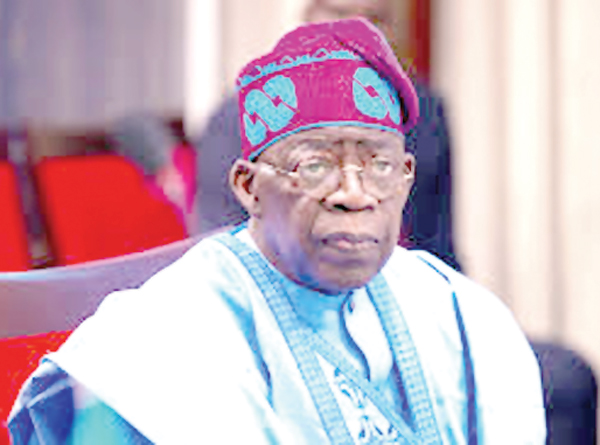President Bola Tinubu decried the havoc wreaked by drug abuse on individuals and families on Wednesday, emphasizing that funding evidence-based preventive measures could save lives and conserve resources otherwise used for treatment and rehabilitation.
He made these remarks in his keynote address at the commemoration of World Drug Day at the Presidential Villa in Abuja.
The day, set aside by the United Nations, aims to raise awareness about the global challenges of drug abuse and trafficking.
Represented by the Secretary to the Government of the Federation (SGF), George Akume, Tinubu highlighted the theme of the commemoration, “The Evidence is Clear: Invest in Prevention,” underscoring the need to commit more resources to collectively and coordinately combat the consequences of illicit drug abuse.
Commending organizations, communities, and individuals engaged in preventing drug abuse and its harms, the president noted that illicit drugs have wreaked havoc globally on individuals, families, communities, and countries.
He emphasized that the socioeconomic and health consequences of drug abuse are devastating, straining healthcare systems.
Tinubu stated, “Drug abuse imposes burdens on governments and people, with consequences reverberating across generations. In the face of this challenge, prevention is our most potent weapon.”
He continued, “Prevention not only saves lives but also conserves resources otherwise spent on treatment and rehabilitation.
It empowers individuals to make informed choices, promotes healthy lifestyles, and fosters resilient communities against drug abuse pressures.”
“Investing in prevention is not just a moral imperative but a prudent safeguard for our future. By allocating resources to evidence-based prevention programs, we can break the cycle of drug abuse and protect our youth from its dangers.”
“Comprehensive prevention efforts must target all sectors of society: schools, markets, motor parks, workplaces, and communities.
All stakeholders must be involved because addressing the drug problem requires a whole-of-society approach.”
“Effective prevention demands broad collaboration among governments, civil society, academia, and the private sector. It also necessitates strengthened international cooperation, sharing of best practices, and mutual support in our fight against drug trafficking.”
Tinubu reassured that his administration would prioritize protecting young people from anything that could jeopardize their future or potential.
ALSO READ:Why we upgraded Agbara plant — Beta Glass
“The task before us demands prioritizing evidence-based prevention strategies, allocating adequate resources, and fostering partnerships for greater impact,” he emphasized.
He pledged government support for the NDLEA and other stakeholders to build on past successes, concluding, “Together, we can build a nation where every individual has the chance to live a drug-free life, where communities flourish, and hope replaces despair.”
Earlier, NDLEA Chairman Brig. Gen. Mohamed Buba Marwa (rtd) reported significant agency achievements in the last three years, including the arrest of 52,901 drug traffickers, 48 of whom were major operators, and over 9,000 convictions.
The agency’s operations led to the seizure of 7.6 million kilograms of various illicit substances like cocaine, heroin, methamphetamine, and cannabis.
Marwa affirmed the agency’s commitment to leading Nigeria towards a drug-free future through preventive measures, including disrupting distribution networks.
“The imperative to invest in prevention is underscored by evidence showing it’s more cost-effective than dealing with the consequences of drug use disorder,” he stressed.
